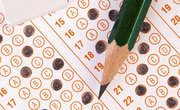As children transition from toddler to elementary age, they are going through many significant emotional and developmental changes. Measuring the skill level of children as they mature and prepare to attend school can be helpful in a number of ways.
By measuring their language, motor, social and adaptability skills, a parent can understand where their child may need more help to get up to speed with peers or where the child may be ahead and continue to cultivate those skills.
The Gesell assessment is one way that educators, parents and pediatricians measure an individual child’s skill level.
History of the Gesell Psychological Test
Developed by Arnold Gesell at Yale University in 1925, it was first called the Gesell Developmental Schedule. The normative data was carefully collected from a longitudinal study of early human development. Its original intent was to measure where a child was in relation to their peers regarding cognitive, language, motor and social-emotional maturity.
Gesell Test Scoring Categories
In 2010, the Gesell Institute updated its information with a three-year nationwide study of 1,300 children aged 2 years and 9 months to 6 years and 3 months old. The resulting GDO-R is a comprehensive multi-dimensional assessment system. It uses direct observations by an approved tester to evaluate a child’s cognitive, language, motor and social-emotional responses in five strands. The five Gesell test categories are:
- Developmental
- Letter/Numbers
- Language/Comprehension
- Visual/Spatial
- Social/Emotional/Adaptive
Gesell Test Scoring
The Gesell test scoring is based on two things: the Performance Level Rating and the Developmental Age.
The Performance Level Rating is broken down into three categories. These are:
- Age appropriate
- Emerging
- Concern
This Developmental Age is then determined by calculating the results of the child’s GDO-R with the child’s actual chronological age. Together, they create the child’s social, emotional, physical and intellectual standing compared to other children in that age group.
How to Prepare for the Gesell Psychological Test
A Gesell Test example can be found online, but there are a few basic things parents can do to prepare their child. Begin with the basics and make the practice for the test as fun and interesting as you can. Consider the interests of the child when preparing practice lessons for the Gesell Psychological test.
Set a brief amount of time aside each day to work on specific skills associated with what is on the test. If the child enjoys building blocks, use these to increase fine motor skills, spelling and reading. Make games that include specific goals, such as writing, if applicable for the child’s age, telling stories and engaging with others.
Fine Motor Skills Practice
To test for fine motor skills, have the child put together puzzles, turn pages in a book or any other task that uses finger dexterity as a measure of success.
You can also test for cognitive skills by asking your child to build a tower of blocks with alternating colors or shapes. Have them count and describe what they are building to pair language and cognitive skills while working on fine motor skills.
Writing Skills for the Gesell Test
The Gesell testing for kindergarten sample test puts an emphasis on writing. Specifically, it will ask them to write their name. Make a craft with small objects, such a pasta, beans or beads and have the child write his name on the final product. This is an engaging task that uses fine motor skills as well as spelling.
Language Skill Practice Ideas
Have the child discuss the craft or tells a story about the object or image that she is creating. This will help them in language skills.
Set aside 15 minutes each night and have the child read to you if they can. Help them to pronounce any difficult words. Take time to read to your child as well to hone active listening skills.
Related Articles
References
Tips
- Be patient with your child and do not get angry if she does not perform as well as you would like. The Gesell Test is simply a test of ability and will not necessarily hurt your child academically or socially. Rather, it will be an invaluable tool to assess her strengths and weaknesses.
Writer Bio
Kimberley McGee is an award-winning journalist with 20+ years of experience writing about education, jobs, business trends and more for The New York Times, Las Vegas Review-Journal, Today’s Parent and other publications. She graduated with a B.A. in Journalism from UNLV. Her full bio and clips can be seen at www.vegaswriter.com.











